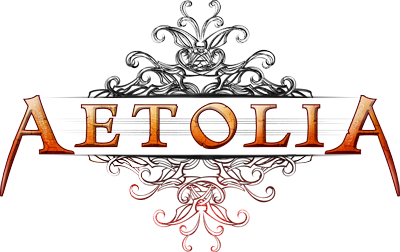Aetolian Game News
The previous several posts...
Written by: Esper Nihm, Auditor
Date: Saturday, December 6th, 2008
Addressed to: Everyone
I will disagree with the Dhasan Aere that "less is more." That statement
is a truism which serves to disregard argument. As such, it may be
discarded as an attempt to rebut responses without actually addressing
any of the points that have been raised, a very immature attempt to
prove oneself right without doing any of the necessary debate.
It seems to me, as an observer of, so to speak, human behavior, that the
discrepancy that has caused this debate is whether or not there is a
kernel of corruption within each mortal. Several terms, from good, evil,
and balance, to selfishness have cropped up within this discussion.
However, I feel that you all ignore several pertinent philosophical
distinctions which need to be made clear if this discussion is to
continue.
The first terms which need to be discussed are those of "good" and
"evil." These, despite what would be popularly believed, are not
subjective terms but rather concepts based in logical assumptions. Now,
someone who would have us believe that doing evil is acceptable makes
several errors in their belief system. Primarily, evil, by definition,
seeks to detract from the quality of life in general; briefly, someone
who seeks to increase evil in the land seeks to increase suffering,
although perhaps not to themselves. The problem with this line of
thinking is that, if "evil" is propagated as a philosophical ideal,
someone will always be trying to detract from your quality of life.
Good, on the other hand, would be the opposite of this concept: rather
than increasing suffering, good would seek to alleviate it. Whereas evil
has an inherent conflict with others who pursue it as a philosophy, good
will only work to help itself. These definitions, which you may dispute
and subsequently be proven wrong, call into question the ridiculous
concept of balance. If one stops to think about what exactly good and
evil mean, good is the better option. Considering the concept of
"balance," which as some believe is the "best" option, it is working
toward good because "balance is better;" it is, after all, "best." Why
else would someone work toward a concept such as balance, if it were not
"better?" Consequently, "balance," working toward the "best" option, is
really working for good; yet such people might murder babies to make up
for the lepers that they save.
Secondly, there seems to be some confusion as to the concept of
selfishness. The people who have posted previously seem to believe that
selfishness is inherently "evil" or "corrupt;" yet, I would point out
the natural example of the fox, such as it appears in the tales of the
Mhun origin story. A fox will take exactly what it needs for itself,
without any consideration for others. The fox cannot conceive concepts
such as good or evil, working for others or working to detract from
others. All it can do is act for itself, such that it will survive. The
example of the fox validates the concept of selfishness for all of us:
at some point in the distant point, all our ancestors thought as the fox
does. It is engrained into our psyche that we seek our own survival
above others. There is nothing inherently wrong with such actions,
because they are a part of who we are. But, there remains the fact that
we may rise above such simple programming and embrace the concept of
good, because we can recognize it.
Some would call this realization embracing the pursuit of purity; while
several of those some might say that the attainment of purity is
impossible, I would disagree. However, such would be an entirely
different argument. The real question that the past several posts have
raised is that of ethics. It is easy to cast one's affiliation with
Light, Good, and Life, or Dark, Evil, and Undeath, but what our actions
really boil down to is how we decide what to do. Indeed, why we do what
we do is the question of any ethical system. Every person has an ethical
system, whether it is based in morality or simple selfishness.
Corruption is rejecting your ethical system, for expediency or pleasure
or any other reason. I would argue that betraying the life we are so
generously given by the gods, and the ethical behavior which should
accompany it, is an act of corruption because such a choice is
convenient in the short term. Of course, my opinion will most likely be
debated or outright rejected.
It is yours to deal with the consequences of being wrong in such.
Esper Nihm,
Auditor
Penned by my hand on the 10th of Slyphian, in the year 261 MA.

